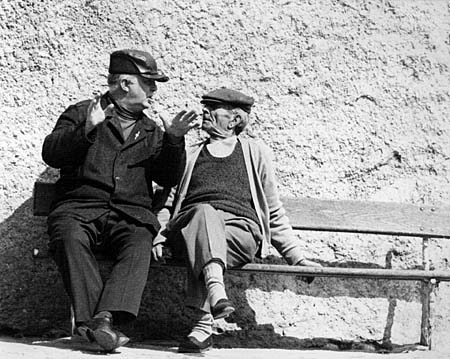
Moreover, very few people love the taste of lutefisk. Only a few more still have any memory of eating it for any but ritual holiday occasions. (I admit that I never eat it, nor did I as a child since my mother loathed the stuff and my father's Swedish Baptist family didn't have the tradition.) However, anyone who sets foot on the campus is invited to join in the meal or to buy a sweater. While these are markers of community membership, that membership is relatively open here.
So, I wonder, why does this editorial appear year after year? Why do the same jokes echo annually? I suspect it might be because we are so unaccustomed to an invitation to participate in a sincere event, devoid of irony or exaggeration. The festival/concert itself is such an invitation. Yes, it is a performance, but fueled by hope and devotion rather than self-promotion or satire. So rare is this that it requires the balance of jokes and critique provoked by the easy targets of flocks of people in wool, Norwegian sweaters and by that meal. No doubt there is also a bit of the inevitable student poking at alumni involved as well.
I suspect that we need that editorial every year. The festival does have the potential to inflate our self image, to be pompous, to give the impression of exclusivity. The sweaters, like many costumes of membership, can be a little silly. The food, like Thanksgiving turkey, it chosen for symbolic reasons at least as much as for nutritional or stylish ones. And, at the same time, I'm grateful to be invited out of the fashionable irony of the age into 90 minutes of (almost) pure sincerity and offered the opportunity to dwell in the hope that is at the heart of advent waiting and Christmas' story.
If you'd like to hear the concert: check here.





































